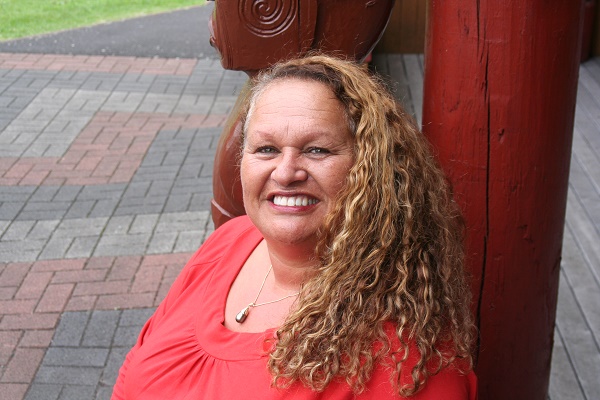
<h4 style="text-align: justify;">Attitudes towards te reo Māori are changing, and most New Zealanders want Māori language to be compulsory learning in schools, according to a new survey.</h4>
<p style="text-align: justify;">The research was carried out by Te Ipukarea, The National Māori Language Institute at Auckland University of Technology (AUT). &#8220;Both Māori and Pakeha think that te reo Māori is an important part of New Zealand&#8217;s national identity and should be compulsory in primary schools. This is what people want for their children and grandchildren,&#8221; says professor Tania Ka&#8217;ai, institute director (pictured).</p>
<p style="text-align: justify;">The vast majority of survey respondents agree or strongly agree that the Māori language should be compulsory in New Zealand primary schools, including 83 per cent of Māori, 80 per cent of New Zealand European/Pakeha and 78 per cent of other ethnicities.</p>
<p style="text-align: justify;">An even larger proportion – 95 per cent of Māori, 94 per cent of New Zealand European/Pakeha and 90 per cent of other ethnicities – agree or strongly agree that the Māori language is an important part of New Zealand’s national identity.</p>
<p style="text-align: justify;">The pop-up survey was completed by 5,391 visitors to the Te Aka Māori-English Dictionary online. Conducted in partnership with the Māori Language Commission, the survey sought to gather data on how the online dictionary is used, the language proficiency of users and attitudes towards te reo Māori.</p>
<p style="text-align: justify;">Those surveyed identified as Māori (58 per cent), New Zealand European/Pakeha (35 per cent) and other ethnicities (7 per cent). They were evenly distributed by age. And, the largest groups by occupation were professionals (37 per cent) and students (20 per cent).</p>
<p style="text-align: justify;">Professor Ka’ai says the rest of the world looks to New Zealand for inspiration and guidance on how to keep indigenous language alive.</p>
<p style="text-align: justify;">Scandinavian countries like Finland, Norway and Sweden are exploring Māori language immersion models such as Kura Kaupapa and Kohanga Reo – the latter of which was the archetype for Hawaii’s Pūnana Leo.</p>
<p style="text-align: justify;">“We are world leaders in language revitalisation. The next step is for the government to make te reo Māori compulsory in primary schools. Let’s lead the world in this,” says Professor Ka’ai.</p>
<p style="text-align: justify;">According to Statistics New Zealand, 377,073 students were enrolled in New Zealand primary schools in 2016 – 72 per cent received no Māori language education, 25 per cent studied Māori as a subject or equivalent and 3 per cent were involved in Māori language immersion.</p>

NZEI Te Riu Roa is considering legal action against the government for the disestablishment of…
NZQA is implementing AI-marking for all Year 10 written assessments from this year onwards, following…
Teaching personal financial responsibility isn't enough. Children should be taught broader economic context, argue New…
When students can't hear the teacher, they can't learn properly. Sound quality matters in education…
The Garden City is rich with learning opportunities, no matter what subject or part of…
Teaching Council of Aotearoa launch school leaders’ stories project with Unteach Racism to challenge institutional…
This website uses cookies.